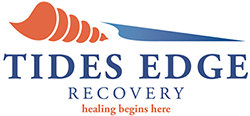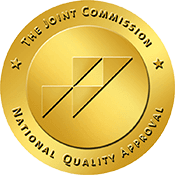 Are you thinking about addiction, detox treatment, and the importance of professional help in overcoming substance abuse? If so, let’s consider various aspects of addiction and recovery, and focus on the benefits of seeking assistance from a Florida detox center.
Are you thinking about addiction, detox treatment, and the importance of professional help in overcoming substance abuse? If so, let’s consider various aspects of addiction and recovery, and focus on the benefits of seeking assistance from a Florida detox center.
How Do People Become Addicted to Drugs and Alcohol?
Addiction is a complex issue with numerous contributing factors. Understanding these factors can help us better address substance abuse and support those struggling with addiction. Some of the most common reasons individuals become addicted to drugs and alcohol include:
Genetics
A family history of addiction can increase an individual’s risk of developing a substance use disorder. Genetic predispositions can make someone more susceptible to the effects of drugs and alcohol, leading to a higher likelihood of addiction.
Environment
Environmental factors, such as exposure to drugs or alcohol, peer pressure, and high-stress situations, can contribute to the development of addiction. Those who grow up in homes with substance abuse or live in communities where drug and alcohol use is prevalent may be more likely to engage in these behaviors themselves.
Mental health
Individuals with mental health issues like depression, anxiety, or post-traumatic stress disorder (PTSD) may self-medicate with drugs or alcohol to cope with their symptoms. This self-medication can lead to dependence and, eventually, addiction.
Brain chemistry
Drug and alcohol use can alter brain chemistry, specifically targeting the brain’s reward system. Over time, repeated substance use can cause changes in the brain that lead to cravings, dependence, and addiction.
Discuss Signs and Symptoms of Drug and Alcohol Addiction
Recognizing the signs and symptoms of drug and alcohol addiction is crucial for early intervention and successful treatment. Some common indicators of addiction include:
- Behavioral changes – Increased secrecy, withdrawal from social activities, mood swings, and unexplained absences can signal a substance abuse problem.
- Neglect of responsibilities – Individuals struggling with addiction may neglect personal responsibilities, such as work, school, or family commitments.
- Physical symptoms – Weight loss, poor hygiene, frequent illness, or changes in sleep patterns can be signs of drug or alcohol abuse.
- Financial problems – Spending excessive amounts of money on drugs or alcohol, borrowing money, or engaging in illegal activities to fund substance use can indicate addiction.
- Legal issues – Substance use can lead to legal troubles, such as DUIs, arrests, or other drug-related offenses.
Many people try to turn a blind eye to these signs and symptoms. As a result, they delay getting help for their loved ones or themselves. If you notice any of the above indicators, it is important to seek out professional detox treatment.
Why Doesn’t Self-Detox Work and Why Can It Be Dangerous?
Attempting self-detox or at-home detoxification can be dangerous for several reasons:
- Severe withdrawal symptoms – Withdrawal from drugs or alcohol can cause severe and potentially life-threatening symptoms. Medical supervision during detox is crucial to ensure the individual’s safety and manage these symptoms effectively.
- High risk of relapse – Without professional support and guidance, individuals attempting self-detox are more likely to relapse due to intense cravings and the inability to cope with withdrawal symptoms.
- Unaddressed mental health issues – Self-detox does not address underlying mental health issues that may contribute to substance abuse. These issues require professional intervention and treatment to prevent continued substance use and promote long-term recovery.
This final point about mental health issues is one of the most important and least understood by many people. If a mental health issue isn’t addressed during addiction treatment, it can often serve to undermine whatever good is taking place.
A seemingly successful recovery can be destroyed if an underlying mental health issue isn’t addressed at the same time. Of course, a self-detox won’t address a mental health issue. Therefore, it’s a key reason why professional assessment and treatment are necessary for a successful and long-term recovery.
Tides Edge made me feel comfortable and made me feel safe. Detoxing is not an easy thing to go through, but I never felt ill at all. My experience there was very positive. The staff was very knowledgeable and caring. If you’re looking for a place to medically detox, Tides Edge is the place that you’re looking for.
-Amy V.
Tides Edge Detox made sure I was comfortable during my medical detox. Also, the therapy is excellent and I felt comfortable being vulnerable with my feelings with groups. Thank you Tides for getting me healthy so I can transition back into real life. I am forever grateful for your facility and caring staff. P.S. a lot of the staff is in Recovery which is a plus. They know exactly what we go through! I highly recommend this place to others who are struggling with addiction.
-Tiffany K.
There is so many good things to say about Tides Edge and it’s overall quality of atmosphere that goes along with working for such a great company. One of the most outstanding things about it is the relationships I’ve built at Tides Edge along with the loyalty from my Employer and for believing in me and my ability to grow in this company. To watch the staffs sincere concerns for the well-being of the client as well as for one another has been an honor to be a part of, and I could not see myself doing anything else. Tides Edge is changing lives…. it’s changed mine.
-Theressa H.
What is Detox Treatment?
Detox treatment is the process of removing toxins from the body, managing withdrawal symptoms, and addressing the root causes of addiction. This typically involves medical supervision, medication, and therapy. Detox is an essential first step in overcoming addiction and beginning the journey to recovery.
What Happens During Detox Treatment?
During the detox treatment process, individuals can expect the following:
Medical assessment
A thorough evaluation of the individual’s physical and mental health is conducted to determine the appropriate level of care and create a personalized treatment plan. This assessment can also identify the most effective medication to manage withdrawal symptoms during detox.
Detox
The individual is monitored 24 hours a day to ensure safety and comfort during withdrawal. Medication may be prescribed to manage pain, cravings, or other symptoms during this process.
Therapy
Individual, group, or family therapy sessions are used to identify the underlying causes of addiction and provide psychological support throughout recovery. This is an invaluable component of detox treatment, as it helps individuals develop coping skills and strategies to avoid relapse in the future.
Medication management
Medications may be prescribed to alleviate withdrawal symptoms, manage cravings, and address co-occurring mental health issues.
Key Therapies Used in Detox Treatment
Cognitive-Behavioral Therapy (CBT)
CBT is a widely used therapy that helps individuals identify and change negative thought patterns and behaviors related to substance use. By recognizing triggers and developing healthier coping mechanisms, individuals can reduce the risk of relapse and maintain sobriety.
Motivational Interviewing
This client-centered therapy focuses on increasing an individual’s motivation to change their substance use behaviors. By exploring ambivalence and building self-efficacy, individuals become more committed to recovery.
Group Therapy
Group therapy sessions provide a supportive environment for individuals to share their experiences, learn from others in recovery, and develop essential social skills. This sense of community fosters accountability and encouragement throughout the recovery process.
Family Therapy
Family therapy involves the individual’s family members in the treatment process to improve communication, strengthen relationships, and address any family dynamics contributing to substance use.
Holistic Therapies
Holistic therapies, such as yoga, meditation, art therapy, and acupuncture, promote overall well-being and help individuals manage stress. They are helpful because they provide individuals with tools to practice when cravings arise and during times of high stress. These therapies complement traditional treatments and contribute to a balanced recovery plan.
Aftercare Planning
Following detox, aftercare planning is essential to promote continued recovery. This typically involves referrals to outpatient rehab programs at Beaches Recovery, 12-step meetings, and other community resources to ensure individuals have the necessary support to maintain sobriety.
Five Benefits of Attending a Detox Treatment Center in Jacksonville, Florida
- Professional support – Detox centers provide medical supervision, experienced therapists, and dedicated support staff, ensuring individuals receive the highest level of care throughout the detox process.
- Safe environment – A controlled setting minimizes exposure to triggers and reduces the risk of relapse, allowing individuals to focus on their recovery.
- Personalized treatment – Detox centers tailor treatment plans to each individual’s unique needs and circumstances, ensuring the most effective approach to recovery.
- Peer support – Connecting with others in recovery provides encouragement, accountability, and understanding, fostering a sense of community essential for long-term success.
- Aftercare planning – Detox centers such as Tide’s Edge Detox help individuals develop a comprehensive aftercare plan to support continued success in recovery, including ongoing therapy, support group involvement, and sober living arrangements when necessary.
What Happens after Detox Treatment?
After completing detox treatment, individuals typically transition to one or more of the following:
Inpatient or Outpatient Rehab Programs
These programs provide ongoing therapy, support, and education to promote long-term recovery and prevent relapse. Drug and alcohol rehab is essential because it helps individuals develop healthy coping skills, social support systems, and strategies for managing cravings. Remember simply getting off a substance doesn’t mean recovery is finished. In fact, detox is only the first step in the process.
Sober Living Homes
Sober living homes offer a structured, drug-free environment where individuals can continue their recovery journey while gradually reintegrating into society. In sober living houses, individuals are expected to abide by rules and participate in activities while receiving ongoing support from peers in recovery.
Support Groups
Support groups, such as Alcoholics Anonymous or Narcotics Anonymous, provide ongoing peer support and accountability, helping individuals maintain sobriety and navigate the challenges of life in recovery. These groups help reinforce what you learned in rehab so that you have a better chance of avoiding relapse.
Is It Time to Go to a Detox Center in Jacksonville, Florida?
If you or a loved one is struggling with addiction and experiencing any of the warning signs mentioned earlier, it may be time to consider seeking professional help at a detox center in Jacksonville, Florida. Detox is a crucial first step in overcoming addiction and beginning the journey toward a healthier, more fulfilling life.
Get Help From Tide’s Edge Detox Center in Jacksonville, Florida
Tide’s Edge Detox Center specializes in providing comprehensive, evidence-based treatment for individuals struggling with addiction. Their experienced staff and personalized approach ensure that each person receives the support and tools necessary for long-term recovery.
Don’t wait any longer. Instead, reach out to Tide’s Edge Detox Center today at 866.723.3127 and take the first step toward a brighter future. With professional support and a commitment to recovery, you can overcome the challenges of addiction and build a healthier, more fulfilling life. thier, more fulfilling life.



